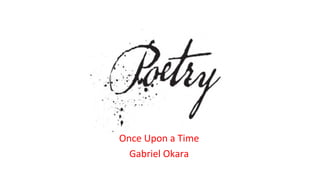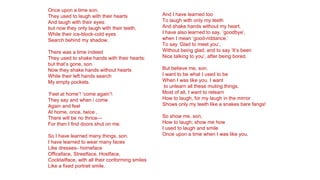1) The poem describes how people have changed over time and become less honest and more deceitful.
2) The speaker laments how he has had to learn different masks to wear in society and no longer laughs or interacts with others genuinely.
3) At the end, the speaker asks his son to show him how to laugh and interact like he used to, revealing his desire to rediscover his original innocent nature.




















